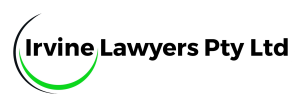In today’s digital age, reputation is everything, especially for small businesses. Defamation can severely impact a business’s reputation and bottom line. As a small business owner in South Morang, Melbourne, understanding defamation laws and knowing how to protect your reputation is crucial. This blog post will explain what defamation is, how to protect your reputation, and the steps to take if you believe you’ve been defamed.
What is Defamation?
Defamation occurs when someone makes a false statement about you or your business that damages your reputation. In Victoria, defamation is governed by the Defamation Act 2005 (Vic). There are two types of defamation: libel (written statements) and slander (spoken statements). For a statement to be considered defamatory, it must be:
- False: The statement must be untrue.
- For example a competitor falsely claims on social media that your business engages in fraudulent practices.
- Published: The statement must be communicated to at least one person other than the subject.
- For example a disgruntled former employee writes a defamatory review on a popular business review site.
- Harmful: The statement must harm the reputation of the subject.
- For example a false rumour spreads that your restaurant has failed multiple health inspections, leading to a significant drop in customers.
How to Protect Your Reputation
Monitor Your Online Presence
Regularly monitoring your online presence can help you quickly identify any potentially defamatory content. Set up Google Alerts for your business name and relevant keywords. Check social media platforms, review sites, and other online forums where discussions about your business may occur.
Respond Promptly and Professionally
If you come across negative content, respond promptly and professionally. Addressing complaints or negative reviews calmly and constructively can help mitigate damage. Sometimes, negative comments are not defamatory but are instead customer complaints that can be resolved through good customer service.
Maintain Good Relationships
Building and maintaining good relationships with customers, suppliers, and the community can serve as a buffer against defamation. A strong, positive reputation can help counteract any false statements that might arise.
Educate Your Team
Ensure that your employees understand the importance of reputation management and know how to handle negative feedback or potential defamatory statements. Training your team in appropriate communication and conflict resolution can prevent situations from escalating.
Steps to Take if You Believe You’ve Been Defamed
If you suspect that your business has been the target of defamation, it’s important to act swiftly and strategically. Following these steps will help you address the situation and protect your reputation:
1. Gather Evidence
The first step is to gather all relevant evidence of the defamatory statement. This includes screenshots, printouts, or any other records of the false statement. Note the date, time, and platform where the statement was made.
2. Seek Legal Advice
Consulting with a lawyer who specialises in defamation law is crucial. At Irvine Lawyers, we can help you understand your rights and options under Victorian law. Our experienced team will guide you through the process and determine the best course of action.
3. Request a Retraction or Correction
In some cases, a simple request for retraction or correction may resolve the issue. Contact the person or platform responsible for the defamatory statement and ask them to remove or correct it. A polite and professional approach can often be effective.
4. Send a Concerns Notice
If a retraction or correction is not forthcoming, your lawyer can help you send a formal concerns notice to the person or entity responsible. This notice outlines the defamatory statement, why it is defamatory, and what you seek (such as an apology, retraction, or compensation).
5. Consider Legal Action
If the issue is not resolved through the concerns notice, you may need to consider legal action. This can include filing a defamation lawsuit. Your lawyer will advise you on the likelihood of success and potential outcomes.
Defences to Defamation
It’s important to note that there are several defences to defamation, including:
- Truth: If the statement is true, it is not considered defamatory.
- Honest Opinion: If the statement is an honest opinion, not presented as a fact, it may be a valid defence.
- Privilege: Some statements made in specific contexts, such as in court, may be privileged and not subject to defamation claims.
Defamation can have a significant impact on your small business’s reputation and success. Understanding defamation laws and knowing how to protect your reputation is crucial for business owners in South Morang, Melbourne. Regularly monitor your online presence, respond professionally to negative content, and maintain good relationships. If you believe you’ve been defamed, gather evidence, seek legal advice, and consider your options carefully.
For personalised legal advice and assistance with defamation matters, book an appointment with Irvine Lawyers today. Visit our booking page to schedule a consultation with our experienced team. Protect your business’s reputation and ensure its continued success.

